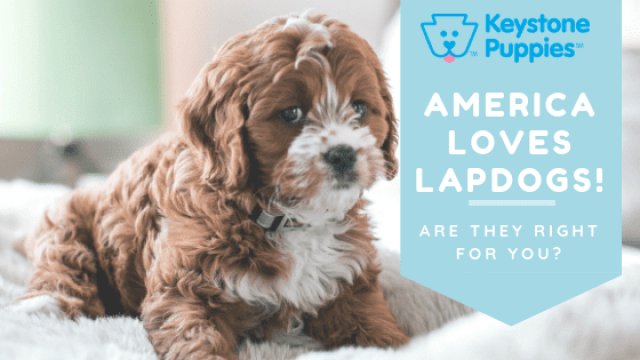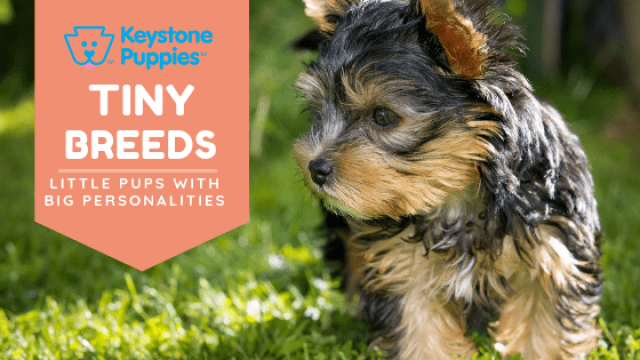10 Breeds That Love Kids
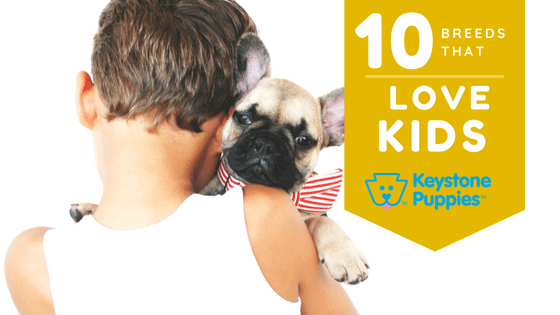
Most kids love dogs, and most dogs love kids. But dogs and kids are not always a perfect match. So it makes a lot of sense to think about the traits of each breed, to increase your odds of a good match. Bringing a dog into the family can help kids become more comfortable around dogs; a skill that will serve them well throughout life. Some studies suggest that keeping a house dog while children are babies can make them healthier by bolstering their immune systems. Living with dogs also teach children cooperation, responsibility, and empathy. And if you find the right pup, and invest time in training your pup (and your kids!) you can also bring a lot of play and love into your child’s life.
When looking for a dog that fits into your family, breed traits are a great place to start, but it’s also important to consider the age of your children. For example, many larger breeds, like Saint Bernards and Bernese Mountain Dogs are big enough to be tolerant of the inevitable pokes and pulls that come from small children. Others breeds, especially smaller breeds like Pugs and Chihuahuas, are more suited to older children who are able to treat dogs more gently.
While you may be prepared to spend time training a new dog, you will also have to make time to teach your children how to treat your canine pal. That will require extra supervision and training time during the first several months. And it’s important to remember that dogs and babies and toddlers should never be left alone together, no matter how gentle the dog. For more tips on how to foster safer relationships between dogs and babies, check out this blog from the ASPCA.
10 Kid-Friendly Dog Breeds
The American Eskimo Dog
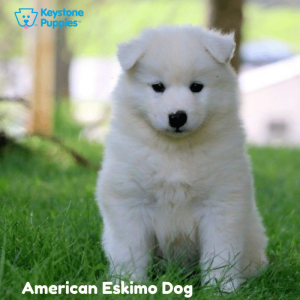
The American Eskimo Dog, or Eskie, is a happy, active, and intelligent breed. They love kids, and they usually form strong, loyal attachments to the children in the home. However, that attachment means they also get sad or lonely when their favorite family members are gone for long periods of time.
Eskies need lots of exercise, so they do well in homes with fenced-in yards or with owners who like to walk, jog, or hike. Without adequate exercise, they become bored and may bark or chew excessively. This intelligent breed also needs a family with strong leaders and consistent training. They like learning commands and are eager to please.
Finally, this breed has strong hunting instincts. They may not match well with a home with smaller pets such as hamsters or birds. Their instincts are also like to compel them to find and chew plush toys, so keep stuffed toys well out of reach.
Collies and Border Collies
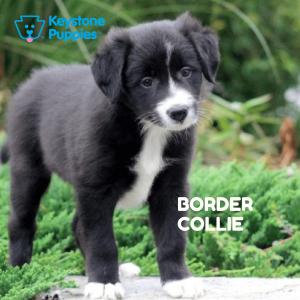
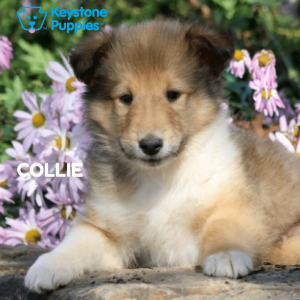
Collies and Border Collies were originally bred as herding dogs, but their devoted, obedient nature also makes them a good fit for families with children. Collies are affectionate with kids, and love being around their families.
As herders, Collies and Border Collies were bred to run and chase. You’ll find them exceptionally eager to chase children as they noisily run and play, and sometimes harmlessly nip at their heels as their herding instincts kick in. But these breeds are also very protective of children, sometimes even protecting them from an angry parent by growling.
These smart puppies need lots of mental and physical stimulation. Give them lots of outdoor exercise. They tend to be good fetchers and like to play with balls. They also enjoy training and following commands. If well-trained, these breeds have been known to respond to hundreds of specific commands.
Newfoundlands
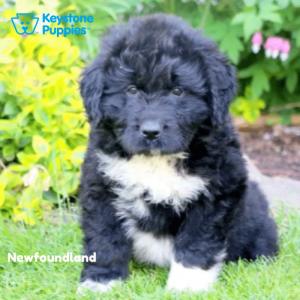 As anyone who has ever seen the movie, “Peter Pan” knows, Newfoundlands are often called “the nanny dog.” These sweet-tempered puppies are patient and loving with children, and often take on a maternal or paternal role, protecting children from perceived threats or dangers, and also physically nudging, licking, and drooling.
As anyone who has ever seen the movie, “Peter Pan” knows, Newfoundlands are often called “the nanny dog.” These sweet-tempered puppies are patient and loving with children, and often take on a maternal or paternal role, protecting children from perceived threats or dangers, and also physically nudging, licking, and drooling.
While the Newfoundland is not a watchdog, he will protect his family from strangers and may growl or bark at people he believes are threats.
It’s also important to know that Newfoundland puppies grow into very big dogs – males can exceed 150 pounds. These large dogs are gentle and tolerant of children’s roughhousing, but they also need a fair amount of space and exercise. If you’re in a small apartment, this breed might not be for you.
Vizslas
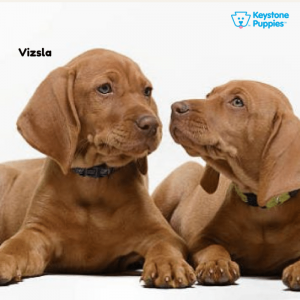
The Viszla has been a prized hunting breed in Eastern Europe for centuries. But in recent decades, more and more Americans have fallen in love with this gentle, affectionate puppy.
Viszlas are large, trim dogs that enjoy lots of outdoor exercise. They’re smart and will follow the commands of a strong and consistent trainer. Young Viszlas are exuberant and have a tendency to romp and bounce, sometimes knocking over nearby people or objects.
Viszlas form tight bonds with children and adults and hate to be left alone. They will follow owners through the house. Although they’re not small dogs, they like to snuggle with young and old humans and, without training, often push their way onto your lap.
Irish Setters
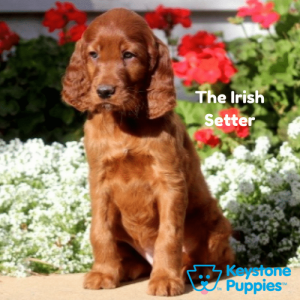
Irish Setters are famous for their happy dispositions, and are often described as “merry.” This playful, mischievous breed likes to play, romp, and bounce and needs an energetic owner that can provide lots of active, outdoor play.
Irish Setters love playing with children but can get overexcited and jump or paw, so it’s important to supervise when they’re with children. Irish Setters can become highly-trained dogs, but their sometimes stubborn nature means a consistent, focused training effort is needed for best results.
Irish Setters are also curious, even nosy, and want to explore and root through new findings. You may want to keep children’s toys, especially plush toys, behind closed doors, in closed cabinets, or out of reach.
Poodles
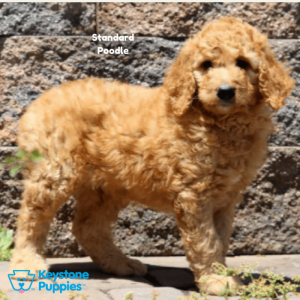
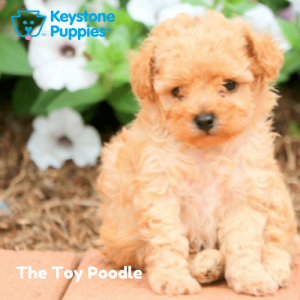
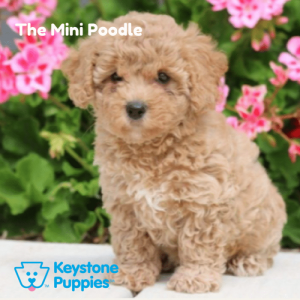
Standard Poodles are popular because they’re very intelligent and easy to train. And they are hypoallergenic, which means that they won’t aggravate most allergies. Poodles are fun-loving, family dogs who love play and lots of activity.
Like many friendly, intelligent breeds, Poodles get bored easily. They do well with lots of people, and plenty of exercise and attention. Large yards are great, but Poodles are known to be fence jumpers, so keep an eye on them.
Mini Poodles and Toy Poodles are also intelligent and easy to train, but because of their smaller size, they are not always a perfect fit for families with very small children.
Labrador Retrievers
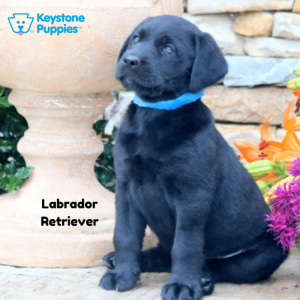
The Labrador Retriever is one of the most popular family dogs. These canines are gentle, good-natured, and like the attention of children of all ages. They are usually tolerant of some tugging and pulling from tiny tots.
Labradors were bred as a hunting dog, which means they need lots of vigorous exercise like runs, romping, playing fetch, and even swimming. Short walks won’t be enough for this boisterous breed.
Labrador Retrievers do well with large family and take guests and large gatherings in stride. They’ll usually warm to people who show them a bit of attention or, better yet, are willing to play with them.
Labrador Retrievers have strong necks, and it may require a strong handler to keep them in check while on a leash. They need consistent training or they can become stubborn. And like most hunting dogs, they have chewing instincts for small animals, or anything that resembles a small animal. Keep plush toys and feather boas stowed away.
Golden Retrievers
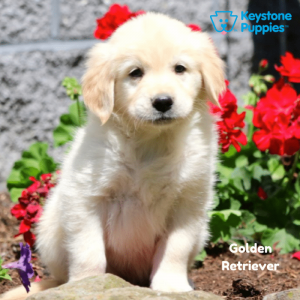
Golden Retrievers are one of the most popular family pets in America. No wonder. This intelligent breed is almost always even-tempered and affectionate. Golden Retrievers love playing with children and are usually gentle in their play. The affable Golden Retriever usually enjoys interacting with other pets and guests. They do well at large gatherings and quickly warm to people who play with them or give them attention.
Golden Retrievers are eager to please, which makes them easy to train. These smart dogs also like to help out in the family home, so take time to train your dog well in fetching and retrieving.
This breed is a hunting dog, which means they crave vigorous outdoor exercise and play. Bored Golden Retrievers may start chewing and digging.
Beagles
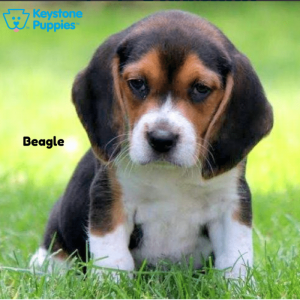
Snoopy, the most famous family dog of all, is a beagle. Beagles are famous for being cheerful, playful and smart. Their soft eyes are often topped with “eyebrow” markings that make them especially appealing to kids and adults.
Beagles were originally bred to be hunting dogs, which may be why they’re such an enthusiastic and loyal companion. These pups want to be around people and get bored or sad when left alone too much.
Like most hunting breeds, beagles like outdoor play, vigorous exercise, playing in the water, and fetch. Their hunting instincts may become fixated on children’s toys or plush items, so keep stuffed animals out of reach.
Boxers
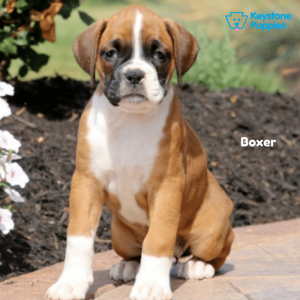
Boxers have been one of the most popular breeds in the United States for decades. These handsome, stately pups look serious and a little intimidating, but they’re actually intelligent and playful. They are extremely loyal to their family and owner and will guard them against strangers.
Boxers can do well with other animals if they are raised with them but can be aggressive with other family’s pets. So don’t allow your Boxer to wander, keep him leashed outside of the home, and don’t assume that he’ll like other new pets just because he gets along with your other pets at home.
Boxers need lots of exercise and attention. They can become destructive if they get bored or lonely. They don’t do well in heat, so limit exercise to early morning and late evening in summer months.
French Bulldogs
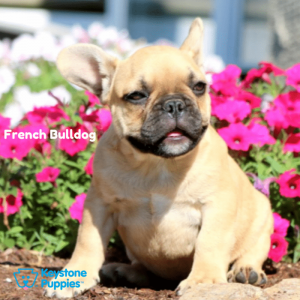
The friendly French Bulldog combines loyalty, an even disposition, and a playful nature. They are good with children and, because of their strong, compact build, are usually tolerant of the inevitable tugs and pulls from small children.
Many families are charmed by this breeds love of frisky play French Bulldogs love to romp and chase but don’t need lots of vigorous exercise. A few short walks per day may suffice.
Unlike many dogs, French Bulldogs can’t swim, so keep them away from the water they can’t stand in, and never leave them alone by pools, lakes or rivers.
****
While breed traits are a good indicator of future behaviors, exceptions exist, and all dogs should be treated with love and care for best results. While different breeds require different amounts of exercise, almost every breed will benefit from regular outdoor exercise. No matter which breed you choose, never leave your dog along with a baby or toddler, or with an older child who does not know how to interact with a puppy or dog. If you’re not sure which breed is right for you, research over 200 dog breeds here. If you’re ready to find the puppy that’s right for your home, click here.





